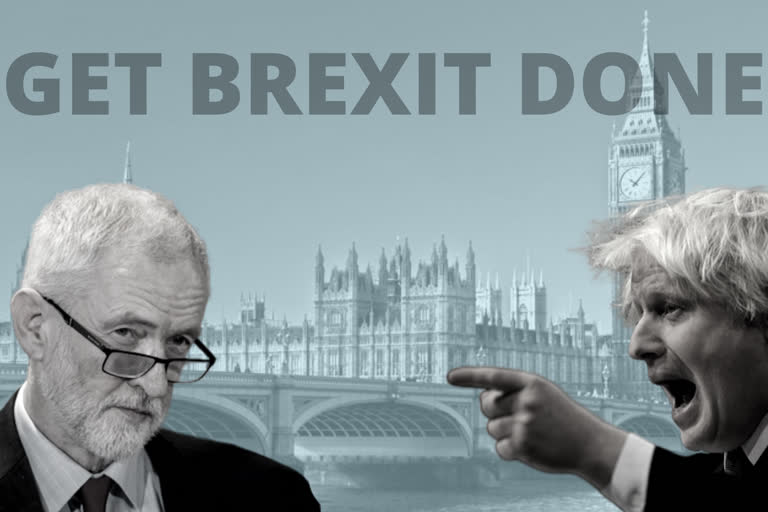London: Boris Johnson defies political gravity. Britain’s prime minister has failed to deliver on his core promise -- to take the country out of the European Union by October 31. He has repeatedly been caught lying. He has used offensive and racist language, and most voters don’t trust him.
Yet polls make him the favorite to win Thursday’s UK election. If Johnson manages to secure a parliamentary majority and a mandate to “Get Brexit Done” -- in the words of his endlessly repeated campaign slogan -- it will be a triumph for a 55-year-old politician who has been written off more than once.
“He does seem to defy the odds,” said Victoria Honeyman, senior lecturer in politics at the University of Leeds. “I’m trying to think of another politician in Britain that’s like him, in that we’re willing to forgive their mistakes to such a degree. Nobody is coming to mind.”
Johnson has built a career playing the rumpled, Latin-spouting clown who doesn’t take himself too seriously. He once said that he had as much chance of becoming prime minister as of being “reincarnated as an olive.” But his bumbling exterior masks a steel core of ambition.
Alexander Boris de Pfeffel Johnson was born in New York in 1964, the eldest of four children in an affluent, boisterous British family with German, Russian and Turkish roots. His childhood ambition, according to sister Rachel Johnson, was to be “world king.” At the elite private school Eton he was clever, though not diligent; one teacher complained to Johnson’s parents about his ”disgracefully cavalier attitude.”
At Oxford University, Johnson was president of the Oxford Union debating society, and a member of the Bullingdon Club, a posh, raucous drinking-and-dining society notorious for drunken vandalism.
As a young journalist for The Daily Telegraph in Brussels, he delighted his editors with exaggerated stories of European Union waste and ridiculous red tape — tales that had an enduring political impact in Britain.
“He created a narrative, which was that poor old defenseless Britain was being ganged upon by all these scheming Europeans who are out to destroy our ancient liberties and our way of life,” said Martin Fletcher, a former foreign editor of The Times of London who was a Brussels correspondent after Johnson. “And that narrative took hold.”
Johnson spent the following decades juggling journalism and politics, downplaying his personal ambition while becoming steadily more famous. He was a magazine editor, a backbench lawmaker, a self-satirizing guest on TV comedy quiz shows. In 2008, he was elected mayor of London, serving until 2016.
His path wasn’t smooth. Johnson was fired from The Times for fabricating a quote. He was recorded promising to give a friend the address of a journalist that the friend wanted to be beaten up. He was sacked from a senior Conservative post for lying about an extramarital affair. He always bounced back.
His words often landed him in trouble. Johnson has called Papua New Guineans cannibals, claimed that "part Kenyan" Barack Obama had an ancestral dislike of Britain, called the children of single mothers “ignorant, aggressive and illegitimate” and compared Muslim women who wear face-covering veils to "letter boxes."
Confronted with past language, Johnson has claimed he was joking, or accused journalists of distorting his words and raking up long-ago articles. Critics allege that his quips are not gaffes, but deliberate dog-whistles to bigots — a populist tactic straight out of the Donald Trump playbook.
None of the gaffes derailed his career. Tim Bale, professor of politics at Queen Mary University of London, said Johnson’s celebrity status means his untruths don’t harm him the way they would most politicians.
“His reputation as someone who, let's say, plays fast and loose with the truth is almost kind of priced in or baked in,” Bale said. “People just accept that that's who he is. And they think, ‘Well, that's Boris.’"
